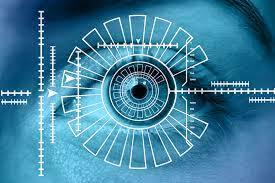Biological Authentication: The Future of Identity Verification
In a world that is increasingly digital, the need for secure and foolproof identity verification methods has never been more critical. Traditional methods, such as passwords and PINs, are proving to be vulnerable to hacking and identity theft. In response to these challenges, a cutting-edge solution is emerging – Biological Authentication. This revolutionary approach utilizes unique biological characteristics to verify and authenticate individuals, promising a more secure and efficient future for identity verification.

Biological Authentication Defined:
Biological authentication involves the use of an individual’s biological traits as a means of verifying their identity. Unlike traditional methods, which rely on something you know (passwords) or something you have (smart cards), biological authentication is centered around something you are – your unique biological features. This can include fingerprints, iris patterns, facial recognition, voice recognition, and even DNA.
The Rise of Identity Verification Woes:
As technology advances, so do the techniques of cybercriminals. Traditional identity verification methods, like passwords verification and PINs, are susceptible to hacking, phishing, and social engineering attacks. Data breaches have become commonplace, exposing sensitive personal information and leaving individuals vulnerable to identity theft. This has created a pressing need for a more secure and reliable method of verifying identity.
The Power of Biological Authentication:
Biological authentication offers a robust solution to the challenges posed by traditional methods. Unlike passwords, which can be forgotten or easily guessed, your biological traits are unique and nearly impossible to replicate. This makes it significantly more difficult for malicious actors to gain unauthorized access.
Fingerprint Recognition:
One of the most widely adopted forms of biological authentication is fingerprint recognition. The patterns and ridges on an individual’s fingertip are unique, making fingerprints a highly secure method for identity verification. From unlocking smartphones to accessing secure buildings, fingerprint recognition is becoming an integral part of our daily lives.
Iris and Facial Recognition:
Iris and facial recognition technologies are also gaining prominence in the field of biological authentication. The distinct patterns in the iris or the unique features of one’s face serve as a digital signature, allowing for seamless and secure identity verification. This technology is being deployed in airports, financial institutions, and even smartphones, offering a convenient and secure user experience.
Voice Recognition:
The way we speak is as unique as our fingerprints. Voice recognition technology analyzes the vocal characteristics of an individual, such as pitch, tone, and rhythm, to create a distinctive voiceprint. This method is being leveraged for secure access to phone systems, voice-activated assistants, and more.
DNA Authentication:
While not as widely implemented as other forms of biological authentication, DNA authentication is a highly accurate method of identity verification. The unique genetic code in an individual’s DNA is impossible to forge or replicate. Though not practical for everyday use, DNA authentication holds promise for highly secure applications, such as forensic investigations and national security.
Benefits of Biological Authentication:
- Enhanced Security: Biological traits are unique to each individual, offering a higher level of security compared to traditional methods.
- Convenience: Unlike passwords or PINs, individuals do not need to remember or carry anything. Your biological traits are always with you.
- Reduced Fraud: The difficulty of replicating biological traits makes it challenging for fraudsters to impersonate individuals, reducing the risk of identity theft.
Challenges and Considerations:
Despite the promise of biological authentication, challenges exist. Privacy concerns, potential for misuse, and the need for standardized protocols are among the issues that need to be addressed. Striking the right balance between security and privacy is crucial for widespread adoption.
Conclusion:
Biological authentication is rapidly shaping up to be the future of identity verification. With its ability to provide a high level of security and convenience, this technology has the potential to revolutionize how we prove our identity in various contexts, from accessing personal devices to conducting financial transactions. As the technology continues to advance and address its challenges, the era of foolproof and secure identity verification may very well be upon us. Embracing the potential of biological authentication is not just a leap forward in technology; it’s a step towards a more secure and confident digital future.






